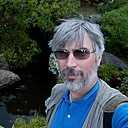Wesley R. Elsberry

Posts: 4991
Joined: May 2002
|
Paul Cottle had an excellent, though depressing, presentation today at the Florida Citizens for Science meeting. (Numbers below from memory... they may wobble.) He noted that Florida is assessed as currently coming in either next to last or last nationwide in K-12 public school science education, nudging out such states as Georgia, Alabama, and Mississippi for the dishonor. The state is looking at nearly a three billion dollar shortfall in budget in a couple of years. Fewer students are choosing Science, Technology, Engineering, and Mathematics (STEM) careers (29% of the upper quintile in STEM in the 1990s, contrasted to 14% today). Science scores in the ACT test show only 2% of 8th graders got the highest score (5 out of 5), 1% of 11th graders, and a shocking statistic was that no African-American student at all got a 5 in this most recent period.
A recent influential report (from the "Council of 100", apparently a set of Florida's corporate fat cats) suggested some modest changes to shore up science education, apparently reflected in a current bill in the Florida house. This would set a statewide requirement for high school graduation concerning science courses. Three courses would be required. One would be a biology course. One would be a course in either chemistry or physics. The remaining course would be earth science of some sort. Cottle pointed out that even Mississippi, long noted for lack of production of scientific talent, requires four science courses. Elsewhere in the talk, he also noted that although no correlation could be found linking student success in college science programs to taking AP science coursework in high school, there is such a correlation linked to the number of science courses of any sort taken in high school.
Cottle provided his own set of desired changes for Florida K-12 science education. These started with recognition that preserving evolutionary science education in K-12 is a critical component of maintaining the integrity of science education. He suggested somewhat minor tweaks to the already mentioned change to require some number of science courses, then increased the number, then discussed incentives for teachers with domain training (including the dreaded topic of differential pay). Pumping $100 million (IIRC) into teacher development for science instruction was another suggestion, mirroring the effort recently implemented for improving reading.
This presents a conundrum, in that it will all take additional money and resources while available money is sharply declining, and parent complacency concerning the value of science instruction seems to be increasing. Florida's major industry of tourism service does not drive a need for scientific training, and public knowledge of and commitment to a need for ensuring scientific and engineering innovation continues apace is lacking. The 2008 revision of science standards for Florida changed it from having some of the worst standards in the nation to having one of the best such. But the way in which science is taught now still leaves Florida students behind the eight ball when it comes to science.
Edited by Wesley R. Elsberry on Jan. 24 2010,09:37
--------------
"You can't teach an old dogma new tricks." - Dorothy Parker
|


















